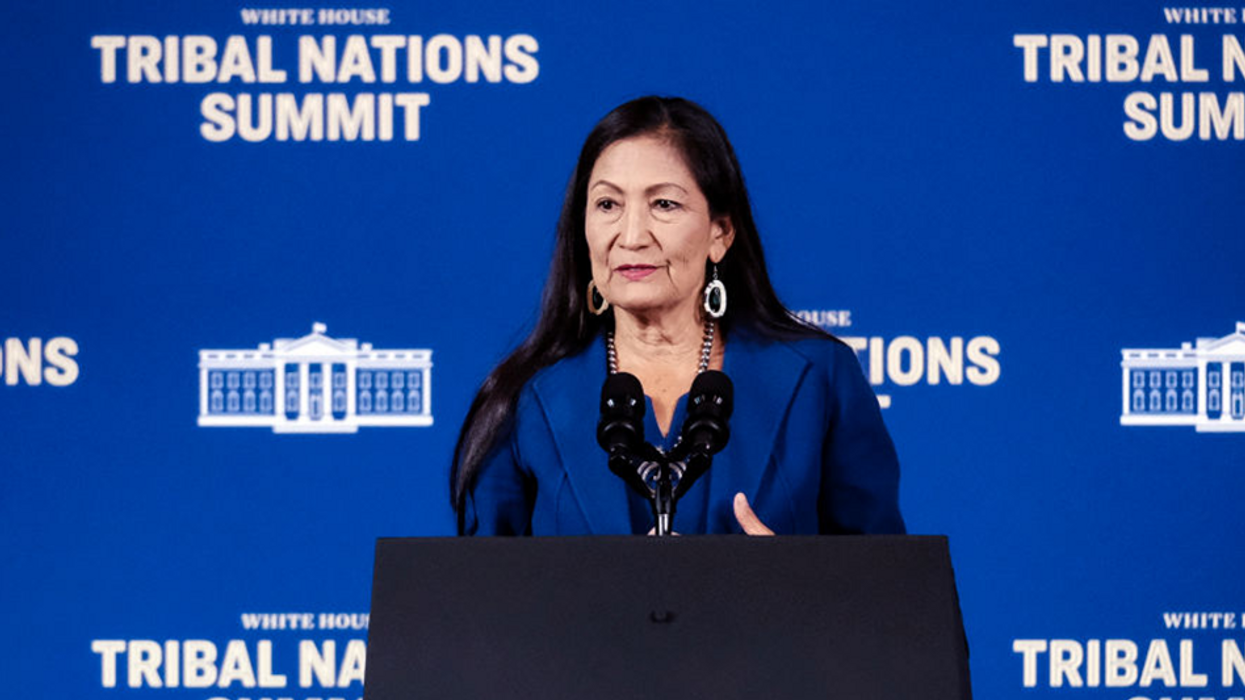
Photo by Pete Marovich/Getty Images

The 'Derogatory Geographic Names Task Force' identified the names to be changed
The United States government continued its ongoing project to remove the names of sites and locations that perpetuate "oppression," according to NBC News.
“Our nation’s lands and waters should be places to celebrate the outdoors and our shared cultural heritage — not to perpetuate the legacies of oppression,” said U.S. Interior Secretary Deb Haaland in in 2021.
Five different sites were recently changed due to the term "squaw," which is alleged to be a racist term. However, the term also comes from the Algonquin language and originally meant "woman" in that dialect, according to TimCast.
“Words matter, particularly in our work to ensure our nation’s public lands and waters are accessible and welcoming to people of all backgrounds,” said Haaland. “I am grateful to the members of the Derogatory Geographic Names Task Force and the Board on Geographic Names for their efforts to finalize the removal of this harmful word," the interior secretary added.
Sites in California, North Dakota, Tennessee, and Texas have all seen name changes as part of a process that was initiated around February 2022. At that time, authorities sought permission to identify and subsequently remove and change the names of 660 U.S. sites, calling the changes "long overdue."
At least one of the name changes has come with outcry from the local population; Squaw Gap in North Dakota, renamed Homesteaders Gap, saw debate from a local newspaper that claimed the name came from “a local rock formation said to resemble an Indian squaw carrying a papoose, and its location in a gap in a hill.”
NBC News noted that a member of the McKenzie County Board of Commissioners said that many residents were in strong opposition to the name change.
"Generally we find they’re disconnected from what the culture and economy are out here," said Joel Brown.
However, a local tribal chairman told the Associated Press, "We are pleased that the racially insensitive and offensive name has been removed.”
In September 2022, Wisconsin state officials changed the names of 28 bodies of water and sites that used the same word.
That same month, government officials announced some of the new name changes they had come up with, including Echo Peak, Texas, and No Name Island, Maine.
Andrew Chapados